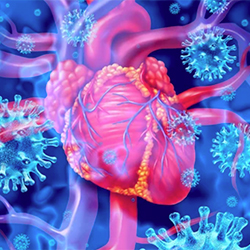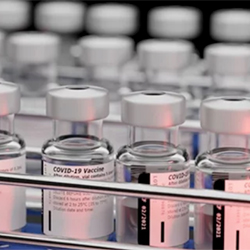By IDSE News Staff
A large international study confirmed a link between COVID-19 vaccination and longer menstrual periods, but the increase for most females was less than one day.
Using the findings from a previous U.S. study, investigators included data from nearly 20,000 people from Canada, the United Kingdom, the United States, Europe and other regions who received any of the nine different COVID-19 vaccines (BMJ Medicine 2022;1:e000297. doi: 10.1136/bmjmed-2022-000297).

The investigators analyzed de-identified data from the fertility tracking app, Natural Cycles—in which the app’s users provide information on their temperature and menstrual cycles. With the worldwide rollout of the COVID-19 vaccines, the investigators were able to expand on their original U.S.-based study.
In total, 19,622 individuals participated in the study, of which 14,936 were vaccinated and 4,686 were not. The investigators analyzed menstrual cycle data of at least three consecutive cycles before vaccination and at least one cycle after. Data from at least four consecutive cycles were analyzed over a similar time frame for unvaccinated participants to use as comparison.
The investigators found that on average, vaccinated people experienced an increase in their menstrual cycles of less than one day in each cycle in which they were vaccinated. After the first dose, investigators found a 0.71 day increase in menstrual cycles and a 0.56 day increase after the second dose. Participants who received both doses in a single dose had a 3.91-day increase in menstrual cycle length.
The team reported that after vaccination, menstrual cycle length increased by only 0.02 days for participants who received one dose per cycle. An increase of 0.85 days was documented for those who received two doses in one cycle, compared with unvaccinated participants.
A total of 1,342 study participants experienced a change in their menstrual cycle length of eight or more days, which included 6.2% of vaccinated individuals and 5% of the unvaccinated group. The investigators noted that younger women who had longer cycle lengths before vaccination were more likely to experience the increase.
The investigators also called for more studies and research on other aspects of vaccination-linked changes in menstrual cycles—such as unexpected vaginal bleeding and menstrual flow and pain—as well as studies to determine the physiological reasons why these changes might occur.




